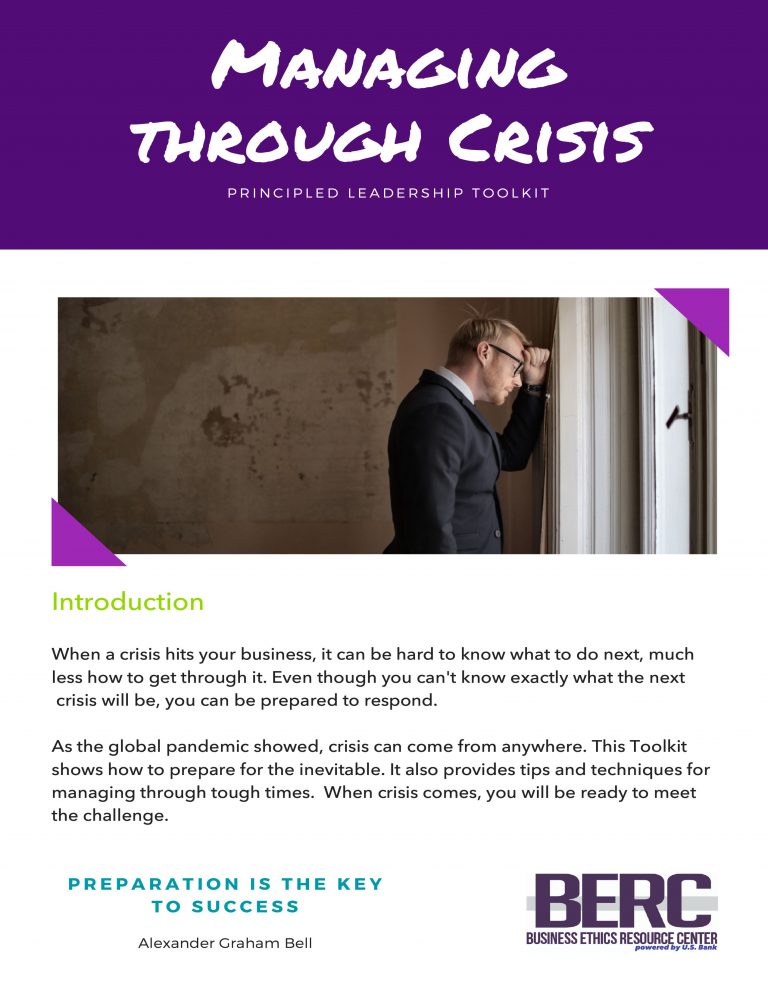Businesses Need To Nurture Leaders Who Know The Right Thing To Do — And Do It
- Companies need to cultivate “moral champions” – employees who defend key values within the organization.
- Companies also need to weed out “moral sinners and neutrals” – employees who know right from wrong but don’t act on it.
- Businesses should seek out employees who demonstrate company values and model these values for other employees.

It’s not unrealistic to look for moral paragons in business. In fact, moral champions can play a critical role in successful firms, argues Duane Windsor, a management professor at Rice Business. Ethics researchers, however, just need to grasp that the business world entails different constraints and opportunities than do some other spheres.
In a recent book chapter, Windsor took a close look at moral leadership models in business. Among his main questions: are heroes and saints, as defined in other spheres, even desirable there?
To find answers, Windsor crafted a typology categorizing different sorts of moral exemplars. His methodology included original conceptual models combined with brief case summaries from available literature. (Windsor noted that his analysis did not provide a systematic survey of literature on the topic, but rather a citation of key selected publications, and that the development of a typology was based on both conceptual development and case study analysis.)
In the resulting pantheon of moral business exemplars, Windsor identified what he termed heroes, saints and moral champions. The moral hero, he writes, typically faces a dangerous, even life-threatening crisis and responds with moral courage. Rwandan hotel manager Paul Rusesabagina provides an example. During his country’s genocide in the 1990s, Rusesabagina reportedly managed to save 1,200 people from being murdered by Hutu militants.
Unsurprisingly, however, there are few candidates for this level of heroism in business. After all, it is not common to encounter the kind of danger that can summon courage like Rusesabagina’s.
“Saints,” meanwhile, show a different kind of initiative: going beyond legal requirements or common ethical standards to defend a particular, humanistic value.
Mohammed Yunus, who in 1976 began experimenting with making credit available to the landless poor, would fall into this category. In 1983, Yunus established the Grameen Bank to make loans available to those unable to get credit from other sources. He received the 2006 Nobel Peace Prize for his innovative concepts of microcredit and microfinance. Windsor categorized Yunus, a Vanderbilt Ph.D., as a “saint,” because Yunus built an enterprise promoting a single ethical value, in this case, helping the poor.
Windsor’s third type of moral leader, a champion, may sacrifice less personally, but defends important ethical standards. William O’Rourke falls into this category. As chief executive of Alcoa Russia in 2005, O’Rourke demanded zero company tolerance for corruption. Under pressure from threatening officials, and again when police robbed him at a local ATM, O’Rourke refused to pay bribes of any sort. In the same era when Siemens engaged in a global strategy of bribery, and Wal-Mart had to launch an inquiry into corruption payments by employees around the world, O’Rourke fended off threats of possible harm from government officials wanting the same type of payoffs. Even when local police stopped transport of a valuable furnace for his firm, O’Rourke refused to submit. With that type of backbone, Windsor wrote, if O’Rourke had faced much more physical danger, he might be classified as a hero.
Then there are the “moral neutrals” and sinners. Windsor created the first label for employees who know right from wrong but don’t act on it. Moral sinners, in this lexicon, are employees who know right from wrong but do not care. Both, Windsor argued, need actively to be weeded from business. Yet moral saints are not always an asset in for-profit firms, or for those who depend on them. A saint, he points out, prioritizes a single, non-financial value to the exclusion of all others – so, not ideal for shareholders or employees who need their paychecks.
Windsor also distinguished among the moral qualities of businesses themselves. This typology included a framework that distinguished between private and public businesses, and between harm avoidance and positive social benefit. To identify these types, Windsor used a classic series of definitions by Adam Smith. The difference between harm and contribution, for instance, echoes Smith’s distinction between citizenship as compliance and good citizenship as concern for social welfare. As Smith put it, a citizen obeys laws and rules. A good citizen strives for others’ well-being.
Businesses that merely refrain from harm, in other words, are mere citizens. But businesses that actively promote social good are good citizens. There is a paradox here, however. In a 15-year panel dataset of nearly 3,000 public companies in the U.S. by other scholars, businesses that did the most harm were also among those most actively doing some good.
Of the three types of moral leader, Windsor concluded, it is really the moral champions that companies need the most. Saints, uplifting as they sound, seldom are financially good for business. Heroes, meanwhile, are rarely called for. Moral champions, however, can be positive and powerful – and nearly as hard to find.
By: Duane Windsor, the Lynette S. Autrey Professor at Jones Graduate School of Business at Rice University. To learn more, please see: Windsor, D. (2014). A typology of moral exemplars in business: Moral saints and moral exemplars (M. Schwartz & H. Harris, Eds.). Research in Ethical Issues in Organizations, 10, 63-95.
This article originally appeared on the Rice University website on October 13, 2016. Used by kind permission of Duane Windsor.


